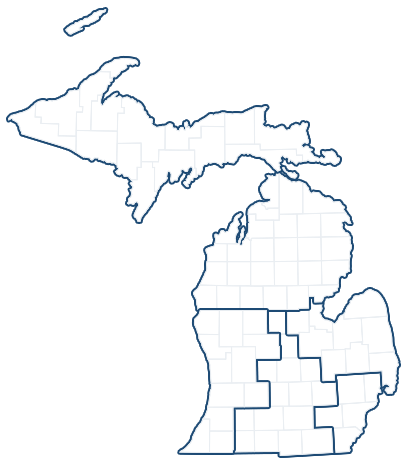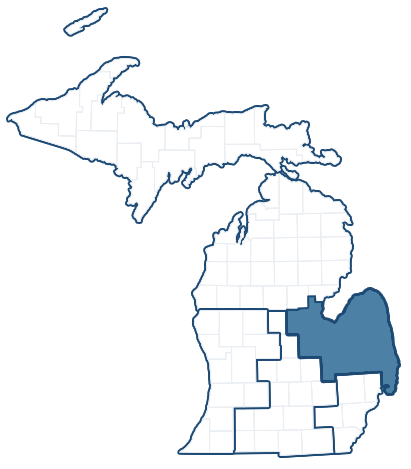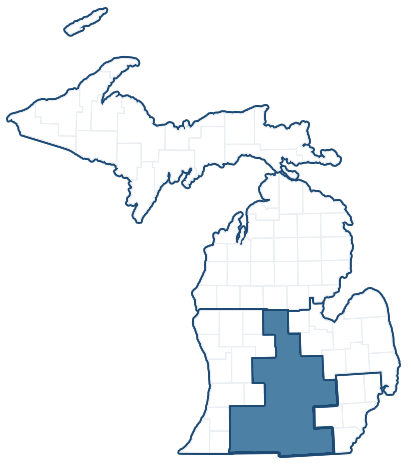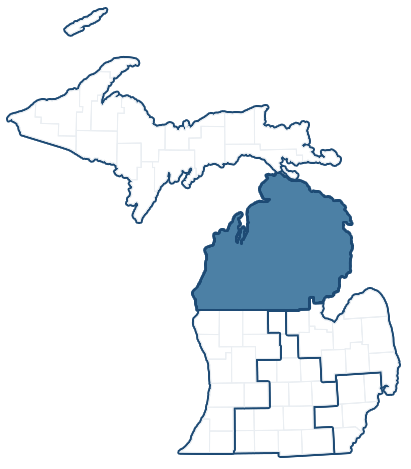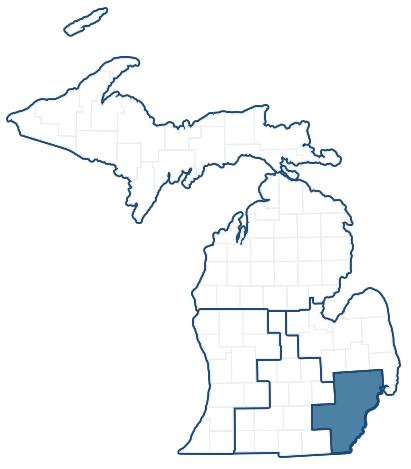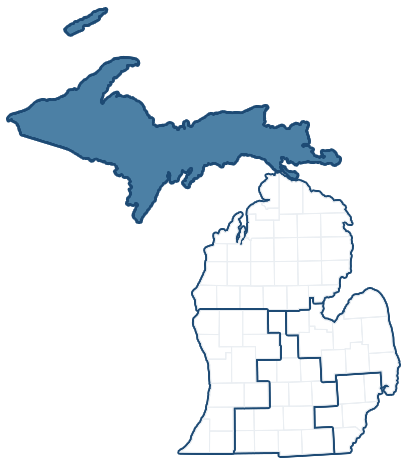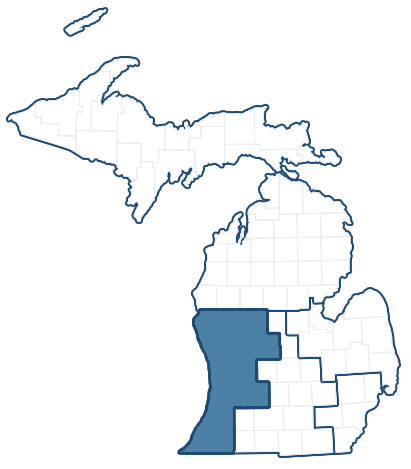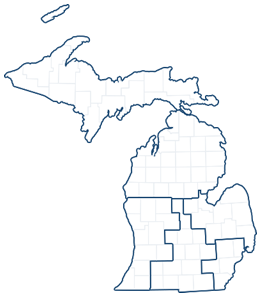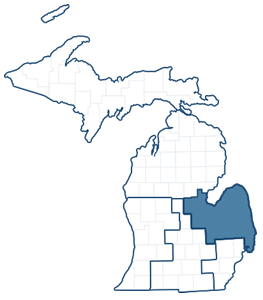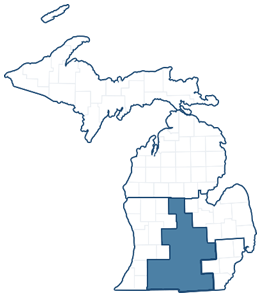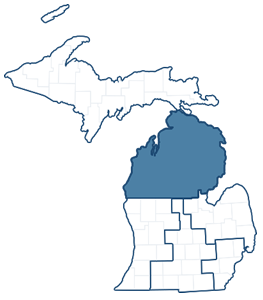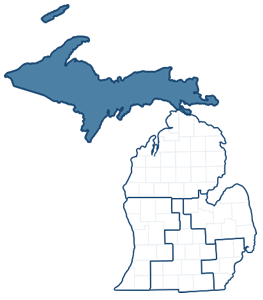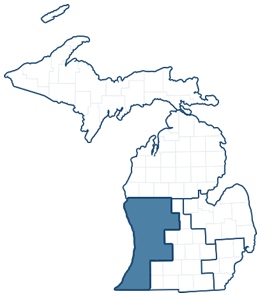2014 Farm Bill Signed in East Lansing
Friday, February 07, 2014At a special signing ceremony today on Michigan State University's campus, President Barack Obama signed into law the bipartisan 2014 Farm Bill authored by U.S. Senator Debbie Stabenow, Chairwoman of the Senate Committee on Agriculture, Nutrition and Forestry. The bill represents rare bipartisan agreement on a major jobs bill - legislation that will help grow Michigan's agriculture economy, the state's second-largest industry. The 2014 Farm Bill reduces the deficit by $23 billion and represents the most significant reform of American agriculture policy in decades.
Michigan State University is America's first land grant college and is a national leader in agriculture research.
"I'm so pleased that President Obama chose to sign this landmark legislation here in Michigan," Chairwoman Stabenow said. "This Farm Bill is about our future, growing our agriculture economy, protecting food assistance for families in need of support, preserving our land and water, and reducing the deficit. With Michigan on every page, I can't think of a better place for this Farm Bill to become law than right here at my alma mater, Michigan State University."
The bill has received widespread support and has been endorsed by a broad coalition of agriculture groups in Michigan, including the Agriculture Leaders of Michigan, Michigan Agri-Business Association, Cherry Marketing Institute, Ducks Unlimited, Michigan Farmers Union, Michigan Farm Bureau, Michigan United Conservation Clubs, Michigan Corn Growers, Michigan Milk Producers Association, Michigan Nature Conservancy, Pheasants Forever, Potato Growers of Michigan, Michigan Bean Commission, Michigan Sugar Company, Michigan Soybean Association, Michigan Floriculture Growers Council, GreenStone Farm Credit Services, Michigan Apple Committee, Michigan Association of Conservation Districts, National Wildlife Federation, Grand Traverse Land Conservancy, Cadillac Area Land Conservancy, Muskegon River Watershed Assembly, Leelanau Conservancy, Michigan Asparagus Advisory Board, Michigan Onion Committee, Michigan Carrot Committee, Tip of the Mitt Watershed Council, Michigan Forest Products Council and Six Rivers Land Conservancy.
The bipartisan, five-year Farm Bill, entitled the Agricultural Act of 2014, will reform agriculture programs, reduce the deficit by $23 billion and help farmers and business owners grow Michigan's agriculture economy. The bill includes major reforms like eliminating the direct payment subsidy program, streamlining and consolidating other programs, and cracking down on fraud and misuse. The bill also invests in initiatives to help strengthen Michigan's fruit and vegetable industries, increase American agriculture exports, and help family farmers sell more goods locally.
Additionally, the bill includes disaster assistance for Michigan's cherry growers and other specialty crop producers who were hit hard by freezes and other bad weather in recent years. The Farm Bill is the biggest investment in conservation the nation has made or is likely to make in years, including support for new regional partnerships for areas like the Great Lakes.
Agriculture is critical to Michigan's economy:
• Agriculture is Michigan's second-largest industry.
• Agriculture supports nearly one in four jobs in Michigan.
• Agriculture exports are a bright spot in Michigan's continuing economic recovery.
• Michigan is second in the nation in crop diversity, growing more variety of crops than any other state but California.
The 2014 Farm Bill:
• Eliminates unnecessary direct payment subsidies, a major reform in American agriculture policy. Direct payments are paid out every year whether or not there is a need.
• Ends programs that are no longer working and consolidates duplicative programs, eliminating 100 programs or authorizations in total.
• Strengthens crop insurance and makes it available to Michigan's specialty crop (i.e., fruit and vegetable) growers.
• Helps farmers and ranchers create jobs and provides certainty for the 16 million Americans working in agriculture.
• Includes Sen. Stabenow's Grow it Here, Make it Here initiative to create new jobs in biomanufacturing (manufacturing using raw agricultural products grown in America).
• Achieves savings in food assistance solely by stopping fraud and misuse while maintaining support for families in need.
• Streamlines and strengthens conservation efforts critical to Michigan, including a new Great Lakes Regional Partnership to help preserve the Great Lakes.
• Cuts $23 billion in unnecessary spending. This is over double the amount of agriculture cuts recommended by the bipartisan Simpson-Bowles Commission. The Senate and House Agriculture Committees are the only Congressional committees to produce bipartisan legislation cutting spending in their own jurisdiction.
Ending Direct Payments
The 2014 Farm Bill saves taxpayer dollars by finally ending direct payment subsidies and other farm subsidy programs. Overall, this bill cuts farm program spending by $23.3 billion.
This represents a landmark shift in federal agriculture policy:
"The most important reform in the bill is the elimination of direct payments to farmers ... This program was one of the worst abuses in the federal budget, and negotiators in the House and Senate should be commended..."
- The New York Times [1/29/14]
"If signed into law, the subsidy cuts would mark one of the biggest changes to farm policy in years." - The Wall Street Journal [6/7/12]
The Farm Bill is "genuinely a landmark shift ... away from direct cash payments to farmers - a much-criticized system begun in the mid-90s - and toward a more market-oriented approach keyed to crop insurance ... The stakes are big: a bipartisan bill promising real savings and impacting an important part of the economy." - Politico [6/12/12]
Ending direct payments "represents one of the biggest policy changes in generations." - Bloomberg [4/26/2012]
Strengthening Responsible Risk Management
Instead of providing direct payments, which were paid every year whether they were needed or not, the 2014 Farm Bill requires farmers to take responsibility for their own risk management through tools that provide support only when there is a need - because of weather disaster or market volatility. The bill strengthens risk management tools like crop insurance to ensure farmers are not wiped out by weather disasters and protects Americans from sudden spikes in food prices. Farmers pay into crop insurance every year, sharing in the cost of disaster relief. Having an effective crop insurance program in place reduces the need for Congress to pass ad hoc disaster bills.
The Farm Bill expands crop insurance protection for fruit growers who have not traditionally had access to it. The bill provides disaster relief to farmers who did not have access to crop insurance and were hit by weather disaster in recent years (such as Michigan fruit growers who saw crops wiped out by spring freezes in 2012).
The bill also creates a permanent livestock disaster assistance program, and retroactively covers producers who were affected by the recent droughts and winter storms on the northern plains.
Specialty Crops/ Fruits & Vegetables
The bipartisan Farm Bill strengthens programs for farmers producing "specialty crops" like cherries, apples, blueberries and asparagus, a significant portion of Michigan's farmers. Along with expanding crop insurance to many fruit and vegetable growers for the first time and providing disaster relief, the Farm Bill also strengthens specialty crop block grants to invest in research and promotion of specialty crops, provides funding to help stop pest and disease threats, helps family farmers sell more goods locally, continues assistance to organic producers, and expands efforts to improve access to healthy foods in urban and low-income communities and in schools.
Streamlining Programs, Strengthening Conservation
The bipartisan Farm Bill is one of the most important conservation bills passed in years. Conservation is critical for Michigan, the Great Lakes and our way of life. Farmers and ranchers have an important role to play in protecting our land and water, and serve as stewards of the land.
The 2014 Farm Bill consolidates 23 existing conservation programs into 13 - while maintaining existing tools to protect and conserve our land, water and wildlife, saving $6 billion. This approach is supported by nearly 650 conservation organizations from all 50 states. The bill also includes a landmark conservation compliance agreement, which ensures crop insurance remains strong while conserving millions of acres of vulnerable lands and resources that our farmers and ranchers will rely on for generations to come. These reforms reduce the deficit and increase resources for top priorities, like the new Great Lakes Regional Partnership - a public-private partnership that helps local farmers and conservation groups address environmental issues in their communities.
Ending Fraud and Misuse in Food Assistance Programs, Protecting Benefits for Families
It's critical that every food assistance dollar go to families in need. The bipartisan Farm Bill stops fraud and misuse to achieve savings in the Supplemental Nutrition Assistance Program (SNAP, a.k.a. "food stamps") while maintaining critical assistance for families that need temporary support. The Farm Bill stops lottery winners from continuing to receive assistance (as was seen in high-profile cases in Michigan in recent years), cracks down on benefit trafficking, and closes a loophole being used by some states to artificially inflate benefits for a small number of recipients. The Farm Bill also provides new pilot programs to help people secure employment through job training and other services, giving them the resources necessary to earn a sustainable income. CBO estimates this section of the bill will save $8 billion without reducing the amount of benefits anyone is intended to receive under the current rules of the program. The Farm Bill also doubles SNAP benefits for low-income families when they buy healthy produce at farmers' markets (for funding for programs like Detroit's "Double-Up Food Bucks", increases funding for food banks, and provides financing for new grocery stores in under-served neighborhoods. The bill also reforms international food aid programs, allowing America to feed 500,000 more hungry people around the world with no additional cost.
Growing the Agriculture Economy
The bipartisan Farm Bill grows Michigan agriculture, our second-largest industry. The Farm Bill:
• Boosts export opportunities to help farmers find new global markets for their goods.
• Helps family farmers sell locally, supporting farmers' markets and spurring the creation of food hubs connecting farmers to schools and community-based organizations.
• Supports beginning farmers with training and access to capital and creates initiatives to help veterans start agriculture businesses.
• Expands bio-energy production, supporting non-food based, advanced biomass energy production and grows American biomanufacturing to help businesses create jobs.
• Invests in research to promote new agricultural innovations.
• Strengthens rural development initiatives to help rural communities upgrade infrastructure and create a better environment for businesses.
The Farm Bill's investments in risk management and programs helping farmers, ranchers and businesses create jobs total $14.2 billion. With all spending cuts and investments, the 2014 Farm Bill reduces the deficit by a net total of $23 billion.
Next Article



